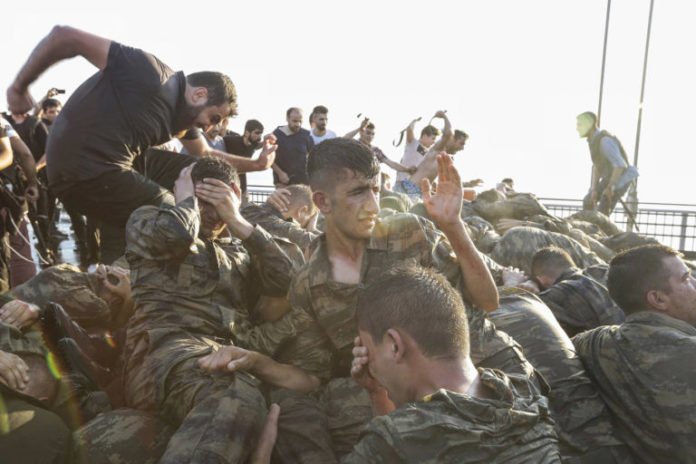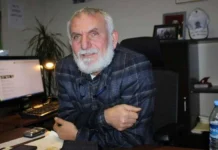Turkish authorities have rearrested and sent to prison four former conscripts who were sentenced to life in prison in a retrial related to a failed military coup in July 2016, the Kronos news website reported on Thursday.
The former military privates were retried after their previous life sentences were overturned by the Supreme Court of Appeals, the report said.
With the new conviction, they were rearrested six months after they were released from prison pending retrial.
Hamza Tokmak, Savaş Çiftçi, Mustafa Dişli and Sertan Babacan were serving their compulsory military service when the 2016 attempted coup took place. They are accused of involvement in events that occurred at İstanbul’s city hall.
Tokmak and Babacan were conscripted by the military five days before the events, while Dişli and Çiftçi were a few days from their discharge.
In their defense, the former privates told the court that they were coerced by their commander, Colonel Zeki Demir, into firing shots into the air to intimidate a crowd of civilians who had arrived at the scene to stop a military unit.
Turkish courts have tried and convicted many conscripts and military cadets on coup-related charges, often handing down lengthy sentences for alleged crimes against the constitutional order.
Human rights advocates have criticized these trials, maintaining that the junior soldiers and cadets were in no position to know what they were involved in or to question their superiors’ orders.
Court statements have shown that some soldiers were under the impression that they were being deployed against a potential terrorist attack, which was a frequent occurrence in Turkey in the months leading up to the abortive putsch.
Rights groups have also highlighted that in some cases, cadets and conscripts were given long sentences, while the commanders who mobilized them got away with lenient sentences or complete impunity.
The Turkish judiciary faces widespread criticism for its perceived lack of independence. Critics accuse President Recep Tayyip Erdoğan of exerting control over the judiciary and establishing one-man rule in the country, particularly after the 2016 attempted coup, following which he launched a massive crackdown on non-loyalist citizens and the country’s subsequent transition to a presidential system of governance, which granted him vast powers.
Many say there is no longer a separation of powers in the country and that members of the judiciary are under the control of the government and cannot make judgments based on the law.
In a development that validated the critics, Turkey was ranked 117th among 142 countries in the rule of law index published by the World Justice Project (WJP) in October, dropping one rank in comparison to last year.















